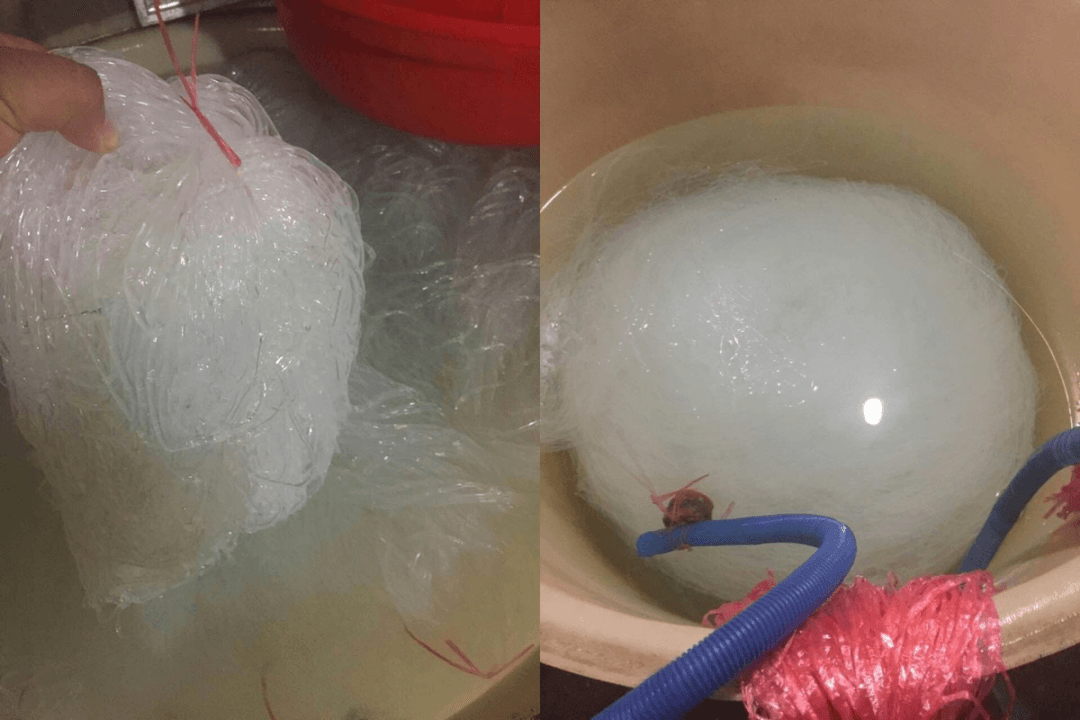In East Asia, shredded jellyfish is a common appetizer, usually served cold and dry. It can come with sauce or as part of various sushi recipes, and is well-liked for its tough texture and chewiness.
But in China, notorious for its unsafe or outright counterfeit food, some rings have figured out how to artificially manufacture the meal—albeit not one that anyone should be eating.
On April 22, police in eastern China’s city of Huzhou seized hundreds of pounds of synthetic jellyfish meat from a small workshop, the local Hangzhou Daily reported May 7.
Fake (L) and real jellyfish. via Yangtze Evening News




